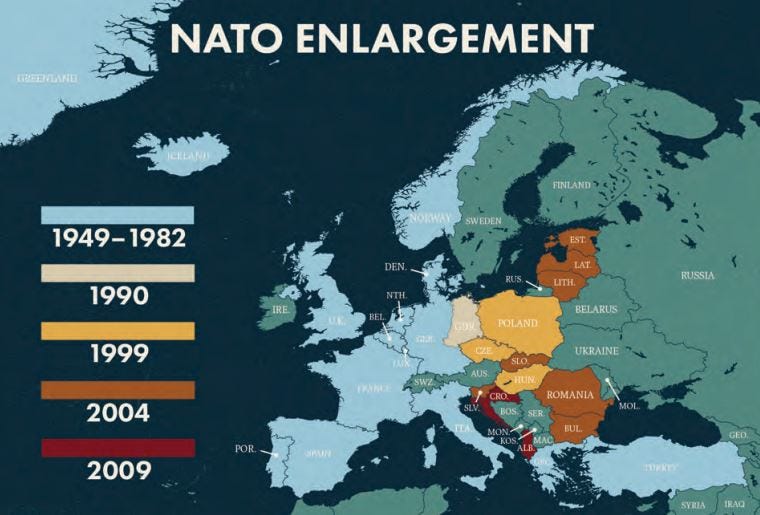
“Not One Inch: America, Russia, and the Making of
Post-Cold War Stalemate” (Yale University Press)
The Mershon Center for International Security Studies
Thirty years after the Soviet Union’s collapse, this book reveals how tensions between America, NATO, and Russia transformed geopolitics in the decade after the fall of the Berlin Wall.
During the Cold War, Leningrad (now St. Petersburg) was about 1200 miles away from the nearest NATO state. Now, due to NATO expansion, it’s about 100 miles away.
(October 30, 2021) —”Not one inch.” With these words, Secretary of State James Baker proposed a hypothetical bargain to Soviet leader Mikhail Gorbachev after the fall of the Berlin Wall: if you let your part of Germany go, we will move NATO not one inch eastward. Controversy erupted almost immediately over this 1990 exchange — but more important was the decade to come, when the words took on new meaning.
Gorbachev let his Germany go, but Washington rethought the bargain, not least after the Soviet Union’s own collapse in December 1991. Washington realized it could not just win big but win bigger. Not one inch of territory needed to be off limits to NATO.
On the thirtieth anniversary of the Soviet collapse, this book uses new evidence and interviews to show how, in the decade that culminated in Vladimir Putin’s rise to power, the United States and Russia undermined a potentially lasting partnership. Prize-winning historian M. E. Sarotte shows what went wrong.
An expert in the history of international relations, Mary Elise Sarotte is the inaugural holder of the Marie-Josée and Henry R. Kravis Distinguished Professorship of Historical Studies. Most recently, she was the Dean’s Professor of History and Professor of International Relations at the University of Southern California (USC). She is also a research associate at Harvard University’s Center for European Studies.
Sarotte earned her AB in History and Science at Harvard and her PhD in History at Yale University. She is the author or editor of five books, including The Collapse: The Accidental Opening of the Berlin Wall.

Webinar: There’s a Zoom discussion about the book on November 4:
“Not One Inch: America, Russia, and the Making of Post-Cold War Stalemate” – A Book Discussion with Mary E. Sarotte
Register Here:
“Not One Inch.” 3:30 PM in Eastern Time (US and Canada)
Event Host:
The American Foreign and Military Policy research cluster is an initiative of the Mershon Center for International Security Studies at The Ohio State University. The cluster focuses on the study of US foreign relations, US defense policy, and international relations, diplomacy, and war as they affect US foreign policy and military affairs in contemporary and historical contexts.
The cluster examines these elements of power from both American and foreign viewpoints in order to understand both the domestic drivers of policy and the impact of other nations on it. The cluster examines foreign and military affairs holistically, along with all elements of power — diplomatic, economic, military, informational, financial, intelligence, cultural, and legal — that have an impact on them.